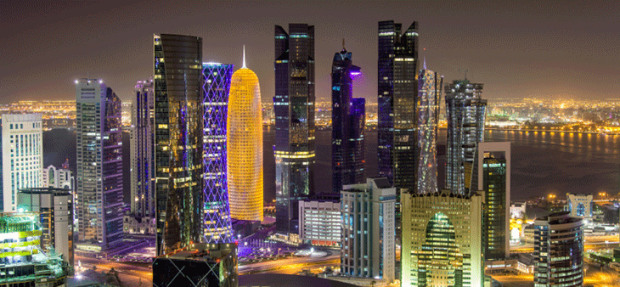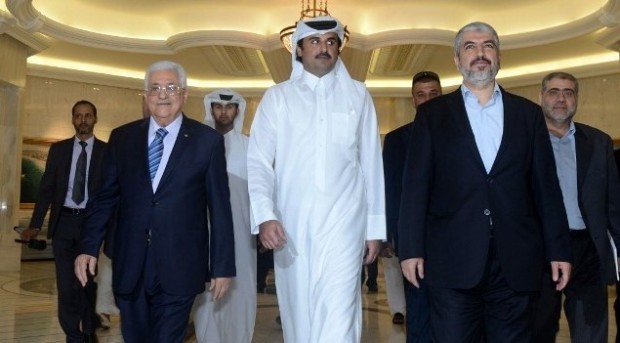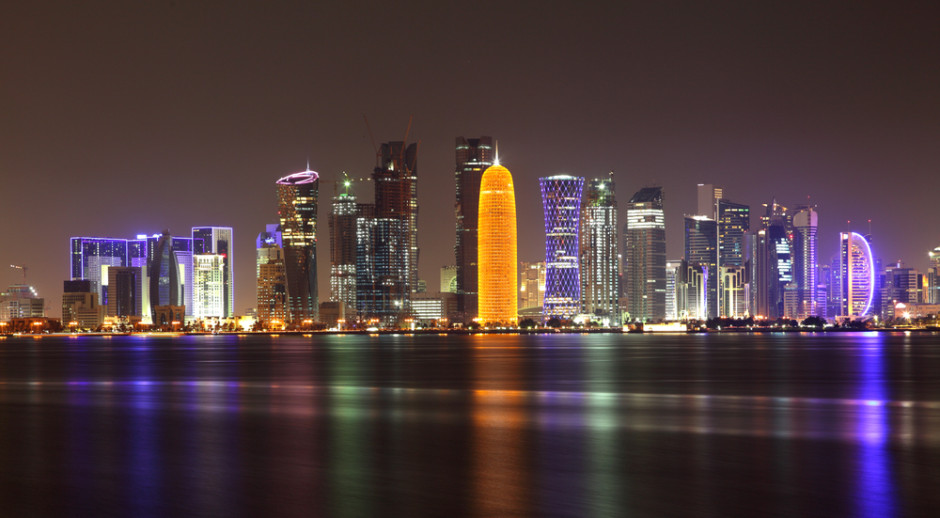There are countries that are known to punch above their weight. For better or worse, one of these of late has been the Gulf state of Qatar.
A tiny country of 11,571 square kilometers jutting out from the Arabian peninsula into the Persian Gulf, its only land neighbor is Saudi Arabia. Most of its population is composed of guest workers. Only 278,000 of its 1.5 million residents are Qatari citizens.
Qatar is a puzzle.
On the one hand, it has embraced modernity: Doha is a dazzling city of luxury hotels and skyscrapers — when completed, the Dubai Towers will be 1,434 feet in height — and a center for global business.
Qatari-owned al-Jazeera has become one of the most influential television networks in the world. With its various speciality channels, it currently has a total of 82 bureaus around the globe, the second largest number of any media company after the BBC. It now has millions of viewers worldwide, including in North America.
The FIFA World Cup, soccer’s greatest spectacle, is scheduled to take place in Qatar in 2022. It will be the first World Cup in the Middle East.
Yet Qatar follows the strict Wahhabi Sunni form of Islam found in neighboring Saudi Arabia and it remains an absolute monarchy –the Consultative Assembly (Majlis as-Shura) created in 2003 has very limited powers.

It has been ruled since the 19th century by the al-Thani family (although as a British protectorate between 1916 and 1971). The current emir, Sheikh Tamim bin Hamad bin Khalifa al-Thani, has been in power since 2013, when his father, Sheikh Hamad bin Khalifa al-Thani, abdicated in his favor.
Thanks to oil and natural gas revenues, Qatar today has the highest per capita income in the world. And it is using its money shrewdly to buy influence throughout the Middle East. Among other things, it plays host to Khaled Meshaal, the political leader of Hamas, and supports the Muslim Brotherhood with money and political assistance.
In 2011, the emirate sent hundreds of troops and tens of millions of dollars in weapons and aid to the Libyans fighting Moammar Gadhafi, including those with Islamist ties, such as the 17 February Martyrs Brigade, one of the most influential rebel formations. Its air force was also involved.
Qatar has also been the most prominent regional opponent of the Assad regime in Syria, and has given generously to those fighting the Shiite regime in Damascus. Last year, according to American and Middle Eastern officials, Qatar used a shadowy arms network to move at least two shipments of shoulder-fired missiles, one of them a batch of Chinese-made FN-6s, to Syrian rebels who have used them against Syria’s air force.
In April 2013 U.S. President Barack Obama warned the Qataris about the dangers of arming Islamic radicals in Syria, including Jabhat al-Nusra. But this has clearly continued. Qatar does not seem to be helping ISIS, the Islamic State of Iraq and Syria, however.
Doha supported Islamist organizations and Muslim Brotherhood-led administrations, including that of Egypt’s former president Mohammed Morsi, during the Arab Spring. Qatar gave refuge to many Brotherhood members who were pushed out of Egypt after Morsi’s downfall, most notably the controversial and highly influential Egyptian sheikh Yusuf al-Qaradawi. Egypt has demanded his extradition.
Egyptian President Abdel Fattah al-Sisi on Aug. 24 accused Qatar and Turkey and the Muslim Brotherhood of spending millions of dollars to spread chaos in the Arab world and to destabilize Egypt.
“Qatar, Turkey and the international organization of the Brotherhood are currently establishing many companies, newspapers and websites,” Sisi said at a meeting with newspaper editors, the Egypt Independent reported. (Recently elected Turkish president Recep Tayyip Erdogan is a major supporter of Hamas and the Brotherhood.)
Despite being a Wahhabi country with historical ties to Saudi Arabia, Qatar has seen the Muslim Brotherhood as a way to project its influence abroad and compete with Riyadh. But this has strained relations with the Saudis and other Gulf states, for whom the Brotherhood is anathema. Months of tension between Qatar and its neighbors came to a head in March when Saudi Arabia, Bahrain, and the United Arab Emirates withdrew their ambassadors.
As a major supporter of Hamas, Qatar has been instrumental in providing funds to the group. In October 2012 then Emir Hamad visited Gaza, where he announced a $400 million aid program to the Islamist organization.
“Every one of Hamas’s tunnels and rockets might as well have had a sign that read ‘Made possible through a kind donation from the emir of Qatar,’” Ron Prosor, Israel’s UN ambassador, wrote in a recent New York Times commentary. Along with Turkey, “Doha wants a starring role in any cease-fire agreement between Hamas and Israel.”

And they have allowed Khaled Meshaal to live in luxury in Doha after he left Damascus in 2012 as the Syrian civil war intensified. Indeed, on Aug. 21 Meshaal and Palestinian Authority President Mahmoud Abbas met with the current Emir in Doha to discuss the Gaza war. Meshaal praised “the brave posture adopted by Qatar and its political leadership” on the Palestinian cause.
“We appreciate Qatar’s stand, the brave political stand of its government and people,” he told the Turkish news agency Anadolu. “Qatar’s support is not just for the Hamas movement, the country extends its support to all the Palestinian people.”
It would appear that Qatar did not play a role in helping bring about the latest ceasefire in Gaza, which was announced on Aug. 26. It would have been a feather in its cap.
Henry Srebrnik is a professor of political science at the University of Prince Edward Island.


